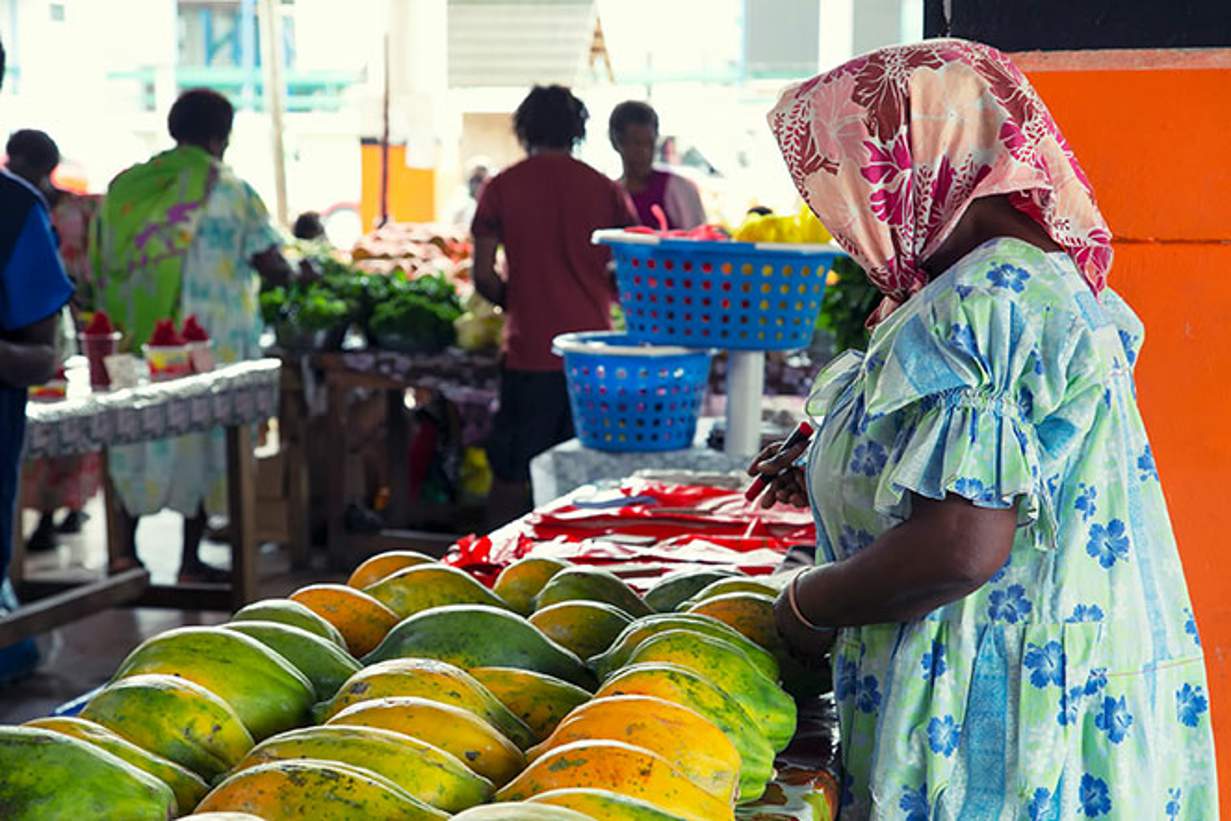
On the surface, the numbers can seem overwhelming.
An estimated 43% of adults in Pacific island countries are obese, based on 2016 data from the World Health Organization (WHO). That’s more than three times the global average. Overall, the Pacific region is home to seven out of 10 of the world’s most obese countries.
Non-communicable diseases (NCDs) have reached crisis levels in the Pacific, and obesity is one of the most visible indicators of that crisis.
But it’s important to look deeper at this diverse region – comprised of thousands of islands spread over an area equivalent to 15% of the Earth’s surface – to understand the complex factors that contribute to its high obesity rates, and how law can be harnessed to address them.
The roots of obesity in the Pacific
The theme for this year’s World Obesity Day is “the roots of obesity run deep,” and organisers are emphasising that there is more to obesity than meets the eye.
This is certainly true in the Pacific region, where a unique mix of traditional norms and modern systems contribute to the prevalence of obesity, in addition to deep-rooted factors like genetics and economics.
“Obesity is a complex chronic disease, shaped by a number of interconnected factors,” says Daiana Buresova, a Fijian lawyer and the McCabe Centre’s Regional Coordinator for the Pacific.
Gender is one of many factors influencing obesity in the Pacific. According to estimates based on WHO data, women in the region are more likely to be obese than men (about 47% versus 38%). The reasons why are complex, but studies have noted that women live a more sedentary lifestyle than men in some Pacific societies, increasing their risk of obesity.
Diet is another major contributor to obesity in the Pacific, and that can seem uncharacteristic for a region that historically subsisted largely on dark green leafy vegetables, root crops, and seafood. But food systems in the Pacific have changed over the past few decades as countries rich in land resources have largely focused on agriculture for exports instead of prioritising food security.
Fiji, for example, imports $21.4 million worth of fresh fruit and vegetables as its farmers focus on export commodities. Other low-lying atoll countries, where land for agriculture is scarce, have become dependent on imported rice, flour, and other processed foods, which have supplanted traditional staples like breadfruit, coconuts, and fish.
As a result of these changes, supermarket shelves in the Pacific are now stocked with cheaper, imported products high in sugar and salt instead of nutrient-rich local alternatives.
Buresova sees how these changes have impacted traditional practices in Fiji. Sweetened drinks are now often cheaper than water and fishermen sell their fresh catch and eat tins of tuna at home.
“Our traditional foods and its systems are deeply embedded in our Pacific culture and lifestyle,” Buresova says. “Yet the consumption of cheap and processed foods has and is undermining these systems, and Pacific governments’ policy focus on export agriculture is doing little to reverse this.”
 Daiana Buresova, Fijian lawyer and McCabe Centre Regional Coordinator for the Pacific
Daiana Buresova, Fijian lawyer and McCabe Centre Regional Coordinator for the Pacific
Law and the changing tides of obesity
Though changes to diet and lifestyle have had a significant impact, strides have been made in recent years to curb the systemic factors contributing to obesity. And legal measures have been important to re-shaping these systems.
Pacific Ministers of Health and Finance endorsed the NCD Roadmap report in 2014 and committed to taking action on four priority areas – including food and beverages linked to NCDs. Their progress in these areas is reported in the Monitoring Alliance for NCD Prevention (MANA) Pacific dashboard.
Since the NCD Roadmap was endorsed, 14 Pacific island countries have increased taxes on unhealthy foods and beverages as of 2019, and two have lowered taxes on fruits and vegetables. Policies have also been enacted to reduce salt consumption, restrict marketing of unhealthy food to children, and promote national dietary guidelines.
Law will also be crucial for Pacific countries to adopt the World Health Organization (WHO) ‘best buys and other recommended interventions’, a series of recommendations for countries to tackle NCDs. These include strategies to address unhealthy diet like mandating front-of-package labelling about salt content and banning the use of industrial trans-fat in food production.
Obesity is everybody’s business
The closer you look at obesity, the more you see that its roots aren’t just deep – they’re also widespread. It intersects with everything from trade law to environmental policies. And ultimately, it’s a matter of human rights.
Because of this widespread reach, law is an essential and cost-effective change-making tool in the Pacific and around the world. Laws on labelling can ensure people have accurate information about the food they eat. Laws about marketing can help consumers make healthy choices without being misled. Laws can help determine what foods are stocked on supermarket shelves and served to children in schools.
At the McCabe Centre for Law & Cancer, our International Legal Training Programs empower members of government and civil society groups to use law to help prevent and control NCDs, including risk factors like obesity. Alumni of the program have gone on to contribute to obesity prevention laws in countries like the Solomon Islands.
There is no single answer for how to tackle a problem as deeply rooted as obesity. Policies have to change, and different sectors have to work together. Though it can seem overwhelming, we can start by looking below the surface of obesity and recognising it is a systems problem, not an individual one.
“We need to shift away from looking at obesity as strictly a health issue,” Buresova says, “and recognise that it is a cross-cutting issue which requires a whole-of-government approach.”
Find out more about how the McCabe Centre is using law to help prevent obesity.